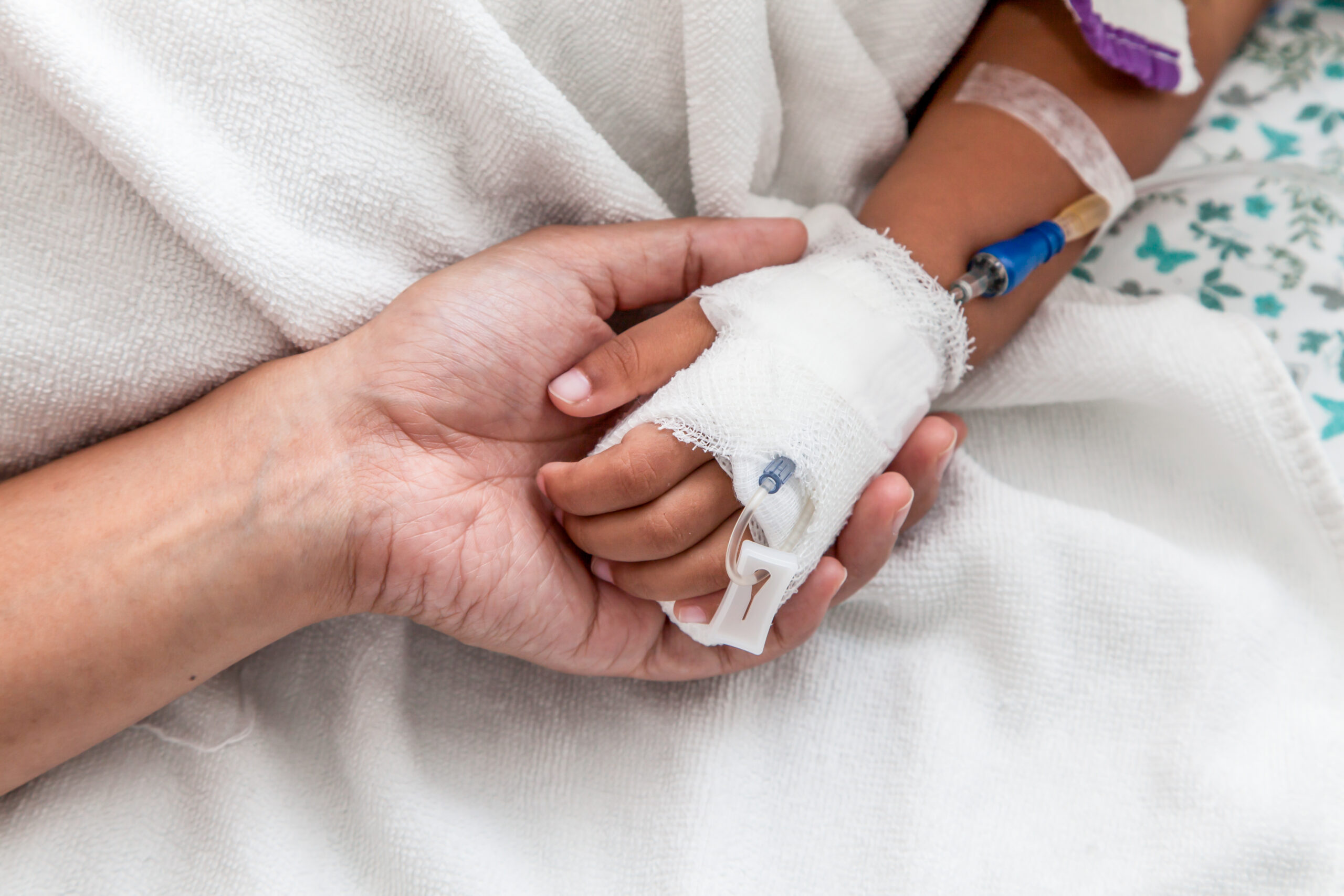Any time your child becomes sick or injured, it can be scary. You may not know what to do. Should you take him or her to the doctor? Do they need to go to the emergency room? Sometimes the answer is clear. For example, if your child is unconscious or is choking, you should call 911 right away. But what if they have a high fever or a rash all over their body? That's when it can be harder to know the best thing to do.
If you have any question at all about your child's health, call their doctor. The doctor or a nurse will be able to tell you what level of care your child needs. This could be an appointment in the doctor's office. It could also be a trip to an urgent care clinic or to the emergency room.
Keep in mind that a trip to the emergency room can be expensive. It can cost 3 times as much to go to the emergency room as it does for a regular office visit. In addition, the wait times are longer, and it is more stressful. At the same time, you want to make sure your child gets the medical attention he or she needs when they need it. That's why it's important to know the best place to seek care.
Path to improved health
There are common illnesses that many children will face at one time or another. Some of these can be cared for at home. Others may need to be seen by a doctor. Still others warrant a trip to the emergency room. But how are you supposed to know how serious the symptoms are? Here are some common illnesses that may cause you concern, and how you should handle them.
High fever (for children over 3 months of age)
Fever is one of the most common reasons parents call the doctor. By definition, a fever is a temperature of 100.4° F, taken rectally. If you take your child's temperature under their arm, add one degree to get a more accurate number. Many doctors recommend not treating a fever unless it is above 101° F. This is because a fever is one of the ways the body fights infection. If your child has a fever, that means their immune system is doing its job.
Most doctors agree that what's most important about a fever is not the number on the thermometer, but how your child is acting. If your child has a fever of 103° F but is acting normally and taking in fluids, it's probably not much to worry about. But if your child has a 103° F fever, is lethargic and isn't eating or drinking, then they probably need to be seen by the doctor. Also call your child's doctor if your child has a fever of 104° F or higher. You should also call if the fever lasts 4 or more days in a row.
Widespread rash
A rash that just occurs in one or two places is probably not a cause for concern. But if your child has a rash that covers their whole body, they may need to see a doctor. Look for a rash that covers the body with small red or purple spots. If you press on them and they don't turn white temporarily, it could be a sign of something serious, such as meningitis. This is especially true if your child also has a fever. Take your child to the emergency room right away if they have this rash.
Another rash you should watch out for is hives on the face. Hives form as part of an allergic reaction. If they form on the face, they could also form inside the mouth or in the throat, which could block your child's airway. If your child has hives on their face, you should go to the emergency room. If your child has hives and is having trouble breathing, call 911.
Bad headache
If your child complains of a headache, rest or over-the-counter pain relievers should take care of it. If the pain lasts for several hours or is so bad that your child can't do regular activities like eating, playing, or watching TV, they may need to see a doctor. Call your child's doctor and see what they say you should do.
Most headaches happen because of tight muscles in the head, not because of a problem with the brain. But they can be a sign of a serious neurological problem. If your child has a bad headache along with confusion, blurred vision, or trouble walking, go to the emergency room. Also, if your child has a headache combined with a stiff neck, fever, vomiting, or a rash, they should be seen in the emergency room. These could be signs of a serious infection such as meningitis.
Stomach bug
Stomach bugs themselves are not often something to worry about. Although they can cause distressing vomiting and diarrhea, they are usually not dangerous. But too much vomiting and diarrhea can cause your child to become dehydrated. This can be dangerous. Sometimes children can get so dehydrated that they need intravenous (IV) fluids. Signs of dehydration include:
- Decreased urination (less than 2 wet diapers in a day)
- Sticky mouth
- Crying without tears
- Sunken eyes with dark circles underneath
- Listlessness
- Pale or clammy skin
- Sunken soft spot on the head in infants
Call your doctor right away or go to the emergency room if your child is showing these signs of severe dehydration, not taking fluids, and is becoming more lethargic.
Injuries
Injuries can be frightening for parents, but they don't always mean you have to go to the emergency room. If your child can move the body part, if the bleeding has stopped, and if the pain can be controlled with over-the-counter medicine, they are probably okay. However, if your child shows any of the following symptoms, they should see a doctor right away:
- Numbness (for example, they hurt their wrist and now they can't feel their fingers)
- Swelling
- Severe pain
- Inability to move the body part
- The body part looks deformed
Should I take my newborn to the emergency room?
In many cases, young babies are different when it comes to illness or injury. For babies ages 2 to 3 months and younger, almost anything out of the ordinary needs to be checked out right away. This could include a fever of 100.5° F or higher, problems feeding, or a bump on the head. Be sure to call your doctor if you have any questions about the health of your newborn.
Things to consider
If you aren't sure if your child needs emergency services, follow this guide. It can help you know what to do.
Call 911 if your child:
- Is unconscious or unresponsive
- Is choking
- Has severe difficulty breathing
- Has an injury to the neck or spine
- Is not breathing or is turning blue
- Has bleeding that can’t be stopped
- Has a severe burn
- Has a head injury and has passed out, thrown up, or is not behaving normally
- Has possible poisoning (call your nearest poison control center first)
Go to the emergency room if your child:
- Is having trouble breathing
- Is passing out or fainting
- Has a seizure that lasts 3-5 minutes or more
- Has a severe allergic reaction with swelling and trouble breathing
- Has a high fever with a headache and a stiff neck
- Is a newborn and has a fever of 100.5° F or higher
- Is suddenly hard to wake up or is confused when you wake them up
- Is suddenly not able to speak, see, walk, or move
- Has a deep wound or heavy bleeding
- Has been bitten by an animal or snake
- Has smoke inhalation
- Has nearly drowned
- Has a serious burn
- Is coughing or throwing up blood
- Has a broken bone, especially if the bone is pushing through the skin
- Has numbness, tingling or weakness in a body part near an injured bone
- Has an unusual or bad headache or chest pain
- Has had vomiting or diarrhea followed by signs of severe dehydration
- Has fallen from a significant height and is injured
- Is experiencing mental health concerns, such as a desire to harm themselves or others
Go to urgent care or call your child’s doctor for:
- Nausea, vomiting, or diarrhea that you're concerned about
- Coughs, colds, and sore throats
- Bladder or urinary tract infections
- Minor cuts, bumps, scrapes, or burns
- Earaches or ear infections
- Sinus pain
- Skin problems
- Joint sprains or muscle strains
Any time you're not sure what to do, call your child's doctor. They will help guide you to the best level of care for your child.
Go with your gut
Doctors encourage parents to trust their instincts when it comes to their child. You know your child better than anyone. If your child just isn't acting right or is sicker than you've seen them before, they should be checked out. You don't want to take them to the emergency room for minor illnesses. But sometimes you may think something is seriously wrong. If you do, it's better to get them seen by a doctor right away and find out that they are not seriously sick.
Questions to ask your doctor
- What should I do if I don't know how serious my child's illness is?
- How long should I wait to hear back from a doctor on call?
- Should I take my child to an urgent care clinic or to the emergency room?
- Which emergency room is best to take my child to?
- When is a situation so serious that I should call 911?
ADVERTISEMENT
ADVERTISEMENT




